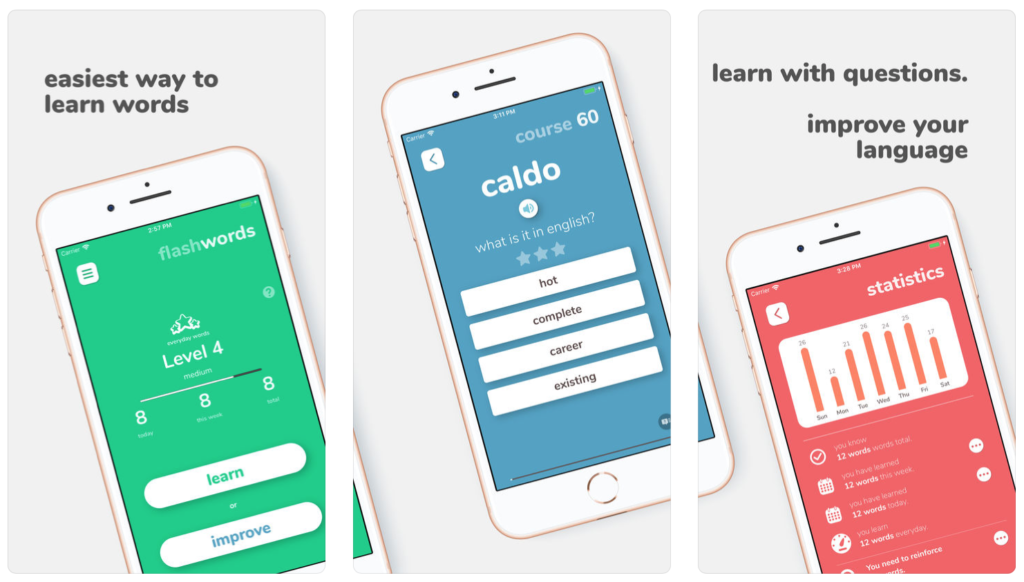Flashwords gives Duolingo a run for its money with its speedy language-learning techniques
Developer: muhammed kılınç
Subscription: $2/£2 per month
Price: Free
Size: 41.5 MB
Version: 1.5.5
Platform: iPhone & iPad
Update! Flashwords has received a few updates since we last reviewed it over two years ago. Let’s take a look at what’s changed in this language-learning app.
So what’s new? The biggest change to Flashwords involves one of our original gripes regarding the app – support for word categories. Now, users can learn words around different themes (for instance, science vocabulary or history vocabulary), which makes purposeful language-learning a lot easier. However, our other gripe – support for additional languages – hasn’t been addressed, meaning you’re still fairly limited when it comes to the foreign languages you can learn in Flashwords. And considering that the app still charges $2/£2 on a monthly basis, some users may be disappointed with this.
Revised rating: It’s great to see Flashwords gain support for vocabulary categories, but support for additional languages should be a key priority for the developer now. ★★★½
—–
Our original review, written in June 2018, is presented in its entirety below.
Didn’t pay much attention during high school French but have a trip to the south of France penciled in for this summer? Don’t fret, because Flashwords promises to make language-learning as quick and painless as possible. After a few weeks with the app, you should have enough words in your repertoire to muddle through a handful of exchanges en français.
Flashwords takes on the likes of Duolingo by offering a differentiated, vocab-focused language-learning experience. The app usefully begins with a starter exercise in which your level of ability is determined. From here, targeted vocabulary tasks are provided which budding linguists can work their way through: foreign words are presented on-screen, with four possible answers initially given. Flashwords can even read words out to you, which is a useful feature.
At its simplest, the app presents you with multiple choice options
Your progress is recorded in a Statistics interface and past tasks (called “courses”) can be revisited for extra practice. Flashwords also usefully offers two modes of learning: one which is focused on revision, and another which focuses on improving your knowledge through exposure to more adventurous and unfamiliar words.
You’re given the chance to learn words before being tested on them.
Later, you’ll also be asked to type translations to words presented into the app, which poses even more of a challenge through removing any possible guesswork. Usefully, the app works offline (meaning no Internet connection is required), and there’s support for a decent number of languages: English, French, German, Italian, Spanish, Portuguese, or Turkish.
Your progress is monitored through levels, which begin with the basics and work all the way up.
The app is free to use, but an in-app subscription offers a premium version of Flashwords (starting at $2/£2 for one month). So far, all the premium price-tag brings is an ad-free experience, though even the free version seems to be refreshingly lacking in ads.
The app can also send out notifications to remind you to practice, but these can of course be disabled.
Unfortunately, Flashwords doesn’t group vocabulary around themes — in Duolingo, for instance, you can revise Food or Animals and thereby target your learning. But in Flashwords, this kind of functionality doesn’t seem to be available. It should also be noted that Duolingo offers a far wider selection of languages, and so this may be another reason for choosing the bigger name.
However, if you’re looking for a simple but elegant vocab-learning experience, Flashwords may be right up your street. It’s well-designed and offers some nice features, and of course, it’s free to try.

